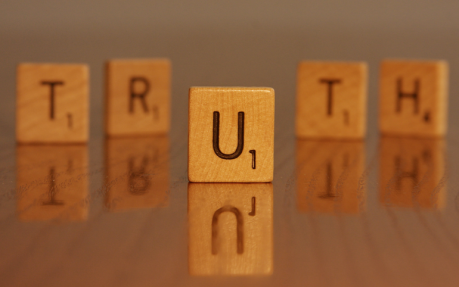With the protective barrier momentarily yielding to Rael’s will, Lyra and Rael stepped into the space beyond. The air felt heavy, charged with an unfamiliar energy that sent shivers down Lyra’s spine. The flicker of unnatural light in the distance beckoned them forward.
As they ventured deeper, the darkness seemed to wrap around them like a living entity. Whispers echoed in the shadows. Lyra crouched deeper on the hover disc, its familiar hum comforting. Rael’s murkmount moved unphased by the void around them, its form blending seamlessly. The unnatural light ahead pulsed with an erratic rhythm.
“Rael, do you sense that?” Lyra whispered, her eyes narrowing at the shifting darkness around the light.
He nodded; his gaze fixed on the source of the glow. “It’s like the energy here is alive, responding to our presence.”
As they approached the flickering light, they discovered an ancient structure emitting the faint glow that dimmed the closer they got to it. Symbols etched into the stone writhed with unseen energy. The air crackled with power.
Lyra, attuned to the whispers of the wind, sensed more than just the visual spectacle. The gentle wind carried echoes of sorrow, pain, grief, and profound loss. The air itself seemed to mourn the ancient civilization that once thrived here. Dismounting her hover disc, Lyra’s boots met the uneven ground, and she felt the cold touch of weathered stone soak through her soles.
The scent of damp earth and aged stone lingered, mingling with the distant hum of the flickering light. Rael, too, dismounted, joining her in grounding themselves in the reality of the ancient structure. The uneven terrain spoke of a history long forgotten, and the chill in the air seemed to seep deep into their bones.

As the symbols on the stone altar seemed to pulse with energy, a chill ran down Lyra’s spine. The sensations were not limited to what they could see—the atmosphere itself resonated with the echoes of a bygone era. The encounter with the altar became not only a visual exploration but a visceral experience, heightening the emotional depth of their discovery. She turned to Rael, her eyes reflecting the weight of the unseen emotions that surrounded them.
“Rael, there’s more here than meets the eye. We need to tread carefully and learn from the echoes of the past if we’re to navigate the challenges ahead.”
Rael lifted his chin in agreement, his senses heightened by the palpable energy in the air.
Lyra reached out hesitantly.
“Erhm, should you do that?” Rael grabbed her arm.
“Well, what do you think we should do?”
“I don’t know, but touching a glowing rock thing doesn’t seem like a good idea.”
“Okay, you’re right, but—doing it anyway.” Lyra jerked forward with Rael’s hand still gripping her arm.
The moment her fingertips brushed the surface, a surge of visions flooded both their minds. Images cascaded through her consciousness—scenes from a time when the darkness hadn’t yet enveloped the entire area outside the barrier. She glimpsed a world bathed in sunlight, vibrant and teeming with life, a stark contrast to the desolation that surrounded them now.
The Great War came, and the aftermath on their land was far less damaging than the devastation faced by this realm. Their land and people bore scars, enduring losses, and damages, but this land had been wholly consumed by the darkness that fueled the Great War for their people.
As the visions shifted, a foreboding convergence of their land and this one unfolded. The fabric of the barrier trembled and fell beneath the weight of impending pressure. Lyra felt the heaviness of their world engulfed in darkness, witnessing shadows reveling in victory.
Amidst the shifting scenes, Lyra realized that the remains surrounding her were not mere rocks but the remnants of a once-great civilization, dwarfing their own in scale. The echoes of an ancient tragedy reverberated through the shadows, and a profound sense of loss hung heavy in the air.
Lyra withdrew her hand, the visions dissipating like mist. She turned to Rael, her eyes reflecting a mixture of awe, sadness, and apprehension.
“Rael, this altar holds the memories of a world that once thrived beyond our knowledge. We’re not the first to face this darkness, and this convergence—it’s a warning. We need to comprehend what happened here and find a way to prevent it from consuming our world.”
Rael’s gaze met Lyra’s, the gravity of their discovery settled, “I know- I saw too”.
The journey into the abyss had just taken an unexpected turn, revealing a history intertwined with the very fabric of Feydell’s existence.





 Relationships require mutual adaptation and as in all things He set the example and our relationship with the Father is in no less need for adapting on both sides, His and ours.
Relationships require mutual adaptation and as in all things He set the example and our relationship with the Father is in no less need for adapting on both sides, His and ours. 
 Remember when, as children, we were allowed to have do-overs? Somewhere in your childhood, you are surely able to recall a moment some adult gave you a do-over. A teacher? A parent? A coach? Those were magical moments. A do-over made the entire experience as if the original kerfuffle had never even occurred, right? Getting the chance to bat again after clearly striking out, just one more chance to shine. Getting to retake a test when we did not pass it the first time because “you know this stuff, show me what you know.”
Remember when, as children, we were allowed to have do-overs? Somewhere in your childhood, you are surely able to recall a moment some adult gave you a do-over. A teacher? A parent? A coach? Those were magical moments. A do-over made the entire experience as if the original kerfuffle had never even occurred, right? Getting the chance to bat again after clearly striking out, just one more chance to shine. Getting to retake a test when we did not pass it the first time because “you know this stuff, show me what you know.”
 There are days my body rebels against my will and on those days I may lay on my bed or in the living room on the sofa and groan with disappointment and pain. I may cry through words or tears, as I find my heart sinking from the weakness in my body. I have noticed when I reach the point of groaning its mostly due to the disappointment and sadness of spending another day horizontal. Another day of a schedule canceled or at the least severely disrupted yet again. There may also be a groan of fear for what is ahead for me in the temporal and a grumbling for dreams deferred. Lamenting a healthy body I once had… Sometimes I really just run out of words or am tired of thinking the same things and find there is nothing left but a groan.
There are days my body rebels against my will and on those days I may lay on my bed or in the living room on the sofa and groan with disappointment and pain. I may cry through words or tears, as I find my heart sinking from the weakness in my body. I have noticed when I reach the point of groaning its mostly due to the disappointment and sadness of spending another day horizontal. Another day of a schedule canceled or at the least severely disrupted yet again. There may also be a groan of fear for what is ahead for me in the temporal and a grumbling for dreams deferred. Lamenting a healthy body I once had… Sometimes I really just run out of words or am tired of thinking the same things and find there is nothing left but a groan. life does not have to be a period, it can be a comma. The comma can signify a breath taken in a sentence of a chapter of our life story that points toward the significance of pacing self as our story unfolds. My groan can now reflect a seeking of peace, restoration, wholeness, and redemption which fosters hope. I have despaired of hope and it’s a pain that burns just as deep as the fire of hope when I am able to turn the despair on its head! When I cannot His strength is sufficient for me to hold on until hopefulness returns! This is real life and I am just human and the Father knows this and I believe He is patient with me as I work all this out through Him and apply His word to my heart and life each day.
life does not have to be a period, it can be a comma. The comma can signify a breath taken in a sentence of a chapter of our life story that points toward the significance of pacing self as our story unfolds. My groan can now reflect a seeking of peace, restoration, wholeness, and redemption which fosters hope. I have despaired of hope and it’s a pain that burns just as deep as the fire of hope when I am able to turn the despair on its head! When I cannot His strength is sufficient for me to hold on until hopefulness returns! This is real life and I am just human and the Father knows this and I believe He is patient with me as I work all this out through Him and apply His word to my heart and life each day.
 I believe Jesus took this moment and demonstrated the great commandment to love your neighbor. He wants to connect with us in more than words, and as we are made in His image and charged to be a reflection of Christ, we are expected to connect to our neighbors. The man was not untouchable despite his obvious imperfections. Jesus made certain to demonstrate how we are to encounter others in need.
I believe Jesus took this moment and demonstrated the great commandment to love your neighbor. He wants to connect with us in more than words, and as we are made in His image and charged to be a reflection of Christ, we are expected to connect to our neighbors. The man was not untouchable despite his obvious imperfections. Jesus made certain to demonstrate how we are to encounter others in need.

 Popper (1963) determined in so many words, the moral framework of liberalism is a counterbalance to such structures as Nazism. He believed the answer to public opinion is the western rationalist tradition of critical discussion. He was pro-argument for truth’s sake for as Popper noted, “the truth is hard to come by.” The great Winston Churchill (1940) stated:
Popper (1963) determined in so many words, the moral framework of liberalism is a counterbalance to such structures as Nazism. He believed the answer to public opinion is the western rationalist tradition of critical discussion. He was pro-argument for truth’s sake for as Popper noted, “the truth is hard to come by.” The great Winston Churchill (1940) stated: People rely on the ability of the clinician to create a safe space by which they open themselves up to vulnerable existences. No one wants to be the individual bringing an accusation up to the licensing board, but in the end, the importance of the safety in our field weighs more heavily than that of whether or not the alleged offender continues to feel fond of the accuser. Popper (1963) discusses the importance of truth and though he was not discussing the role of a therapist, in the mental health world truth is crucial. Reporting an individual for doing wrong, being a gatekeeper for society or even the mental health world is a weighty responsibility, and one that each clinician takes on when accepting licensure and each person carries as a member of a community. If clinicians do not hold truth and reporting of offenses in high regard, people get hurt. If community members do not maintain safety and security of truth and accountability in high regard, people get hurt. Responsibility, integrity, vulnerability, and gatekeeping are paramount frameworks for the care provided by humans for humans deserving of dignity and protection. Society has an obligation to its members to care for and protect one another. There is a guard for creating safety for those with wounds needing healing and clinicians that may prey either intentionally or unintentionally on them.
People rely on the ability of the clinician to create a safe space by which they open themselves up to vulnerable existences. No one wants to be the individual bringing an accusation up to the licensing board, but in the end, the importance of the safety in our field weighs more heavily than that of whether or not the alleged offender continues to feel fond of the accuser. Popper (1963) discusses the importance of truth and though he was not discussing the role of a therapist, in the mental health world truth is crucial. Reporting an individual for doing wrong, being a gatekeeper for society or even the mental health world is a weighty responsibility, and one that each clinician takes on when accepting licensure and each person carries as a member of a community. If clinicians do not hold truth and reporting of offenses in high regard, people get hurt. If community members do not maintain safety and security of truth and accountability in high regard, people get hurt. Responsibility, integrity, vulnerability, and gatekeeping are paramount frameworks for the care provided by humans for humans deserving of dignity and protection. Society has an obligation to its members to care for and protect one another. There is a guard for creating safety for those with wounds needing healing and clinicians that may prey either intentionally or unintentionally on them.














 Where has the comedy gone? Relationships are falling flat and the adult world is taking over!!! The following is a review of Penny and Leonards System Dynamics. I would LOVE your feedback on the joy…or discontent… you find with these lovable friends! (***ALERT*** longer post than usual but it’s worth dealing with the extra 3 minutes of reading! maybe.) P.s. I am sadly aware there are so many from this tribe I did not get to mention… mostly because this became SO LONG!
Where has the comedy gone? Relationships are falling flat and the adult world is taking over!!! The following is a review of Penny and Leonards System Dynamics. I would LOVE your feedback on the joy…or discontent… you find with these lovable friends! (***ALERT*** longer post than usual but it’s worth dealing with the extra 3 minutes of reading! maybe.) P.s. I am sadly aware there are so many from this tribe I did not get to mention… mostly because this became SO LONG! The couple has adopted Sheldon as a relationship akin to a younger sibling or a child. They are unable to ignore him and move forward. The more Leonard needs Penny, the more Sheldon needs Leonard. The couple presents with continual attempts to sabotage their own marriage, I believe both are in fear of losing the other and are finding themselves unable to face that fear. Pushing through fear is challenging and a way back to a healthy marriage is communication about these issues.
The couple has adopted Sheldon as a relationship akin to a younger sibling or a child. They are unable to ignore him and move forward. The more Leonard needs Penny, the more Sheldon needs Leonard. The couple presents with continual attempts to sabotage their own marriage, I believe both are in fear of losing the other and are finding themselves unable to face that fear. Pushing through fear is challenging and a way back to a healthy marriage is communication about these issues.